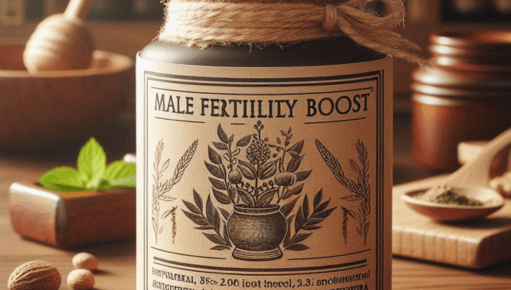Ayurveda, the ancient Indian system of medicine, offers a holistic approach to health, emphasizing the balance between mind, body, and spirit. Among the many conditions Ayurveda addresses, male fertility issues have gained significant attention. With the rising awareness of natural and holistic health solutions, many are turning to Ayurvedic medicine as a viable alternative or complementary therapy for improving male fertility.
Understanding Male Fertility Issues
Male fertility is influenced by various factors, including lifestyle, diet, stress levels, and environmental toxins. best ayurvedic medicine for male fertility Common issues affecting male fertility include low sperm count, poor sperm motility, and erectile dysfunction. While modern medicine provides several treatments for these conditions, many men seek natural alternatives with fewer side effects. This is where Ayurveda comes into play.
How Ayurveda Approaches Male Fertility
Ayurveda views male fertility as a function of overall health, governed by the balance of the three doshas: Vata, Pitta, and Kapha. Imbalances in these doshas can lead to health issues, including infertility. Ayurvedic medicine aims to restore this balance through diet, lifestyle changes, and herbal remedies.
Key Ayurvedic Herbs for Male Fertility
Several Ayurvedic herbs have been traditionally used to enhance male fertility. These herbs are believed to improve sperm quality, increase libido, and promote overall reproductive health.
1. Ashwagandha (Withania Somnifera)
Ashwagandha, also known as Indian ginseng, is one of the most revered herbs in Ayurveda. It is known for its adaptogenic properties, helping the body cope with stress—a significant factor in infertility. Studies have shown that Ashwagandha can improve sperm count, sperm motility, and semen volume. It is also believed to enhance testosterone levels, further supporting male fertility.
2. Shatavari (Asparagus Racemosus)
Though traditionally known for its benefits for female reproductive health, Shatavari is also beneficial for men. It is considered a potent aphrodisiac and is used to treat various sexual disorders. Shatavari helps balance hormones, reduce stress, and improve sperm quality.
3. Gokshura (Tribulus Terrestris)
Gokshura is widely recognized for its role in enhancing sexual function and treating erectile dysfunction. It is believed to increase testosterone levels, which can improve libido and sperm production. Gokshura also supports the health of the urinary system, which is closely linked to reproductive health.
4. Kapikacchu (Mucuna Pruriens)
Kapikacchu, also known as velvet bean, is another powerful herb in Ayurveda for male fertility. It is rich in L-Dopa, a precursor to dopamine, which helps reduce stress and improve mood. Kapikacchu is known to enhance sperm count, motility, and semen quality. It also supports healthy testosterone levels, contributing to improved fertility.
5. Safed Musli (Chlorophytum Borivilianum)
Safed Musli is renowned for its aphrodisiac properties and is often used to treat erectile dysfunction and premature ejaculation. It enhances sperm count and motility, making it an essential herb for male fertility. Additionally, Safed Musli boosts overall vitality and energy levels.
Ayurvedic Dietary Recommendations for Male Fertility
Diet plays a crucial role in Ayurveda, particularly when it comes to fertility. A diet that nourishes the reproductive system is essential for improving male fertility. Here are some Ayurvedic dietary recommendations:
1. Include Ghee in Your Diet
Ghee, or clarified butter, is considered a superfood in Ayurveda. It is believed to enhance ojas, the vital energy responsible for health, vitality, and immunity. Regular consumption of ghee can improve overall reproductive health and support sperm production.
2. Consume Fresh, Whole Foods
Ayurveda emphasizes the importance of eating fresh, whole foods. Fresh fruits, vegetables, whole grains, nuts, and seeds should be a regular part of your diet. These foods provide essential nutrients that support reproductive health.
3. Avoid Processed and Refined Foods
Processed and refined foods can lead to imbalances in the doshas, particularly Vata and Pitta. These imbalances can negatively affect fertility. Ayurveda recommends avoiding foods high in sugar, refined flour, and unhealthy fats.
4. Incorporate Spices Like Turmeric and Ginger
Spices like turmeric and ginger have anti-inflammatory and antioxidant properties. They help reduce oxidative stress, which can damage sperm cells. Including these spices in your diet can support overall reproductive health.
Lifestyle Practices in Ayurveda for Male Fertility
In addition to herbal remedies and diet, Ayurveda emphasizes certain lifestyle practices that can enhance male fertility.
1. Stress Management
Stress is a major factor contributing to male infertility. testosterone tablets india Ayurvedic practices like meditation, yoga, and pranayama (breathing exercises) are highly effective in managing stress. These practices help balance the mind and body, promoting overall well-being and reproductive health.
2. Regular Exercise
Regular physical activity is important in Ayurveda for maintaining balance in the doshas. Exercise helps improve circulation, detoxify the body, and boost overall vitality. However, it is important to avoid overexertion, as this can lead to Vata imbalance, which may negatively affect fertility.
3. Adequate Sleep
Adequate sleep is crucial for maintaining ojas, the essence of vitality. Ayurveda recommends going to bed early and waking up early, as this aligns with the natural rhythms of the body. Good sleep hygiene supports hormonal balance and overall reproductive health.
Conclusion
Ayurveda offers a holistic approach to addressing male fertility issues by focusing on the balance of body, mind, and spirit. Through the use of best Ayurvedic medicine for male fertility, along with dietary and lifestyle practices, men can improve their reproductive health naturally. While modern medicine provides effective treatments, Ayurveda presents a complementary approach that not only addresses fertility but also promotes overall well-being. If you are considering Ayurvedic remedies, it is advisable to consult with a qualified Ayurvedic practitioner to ensure the best outcomes for your individual needs.

